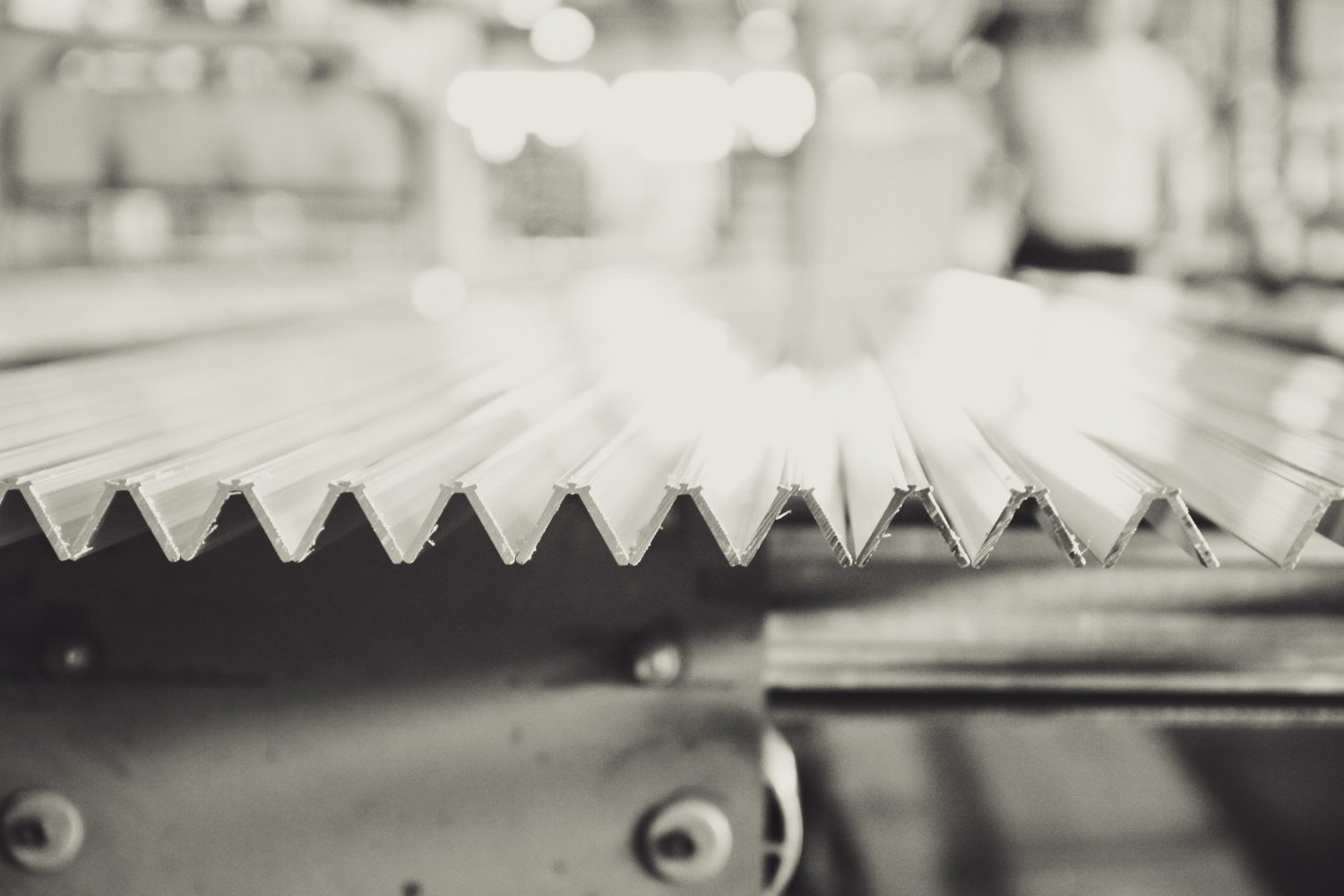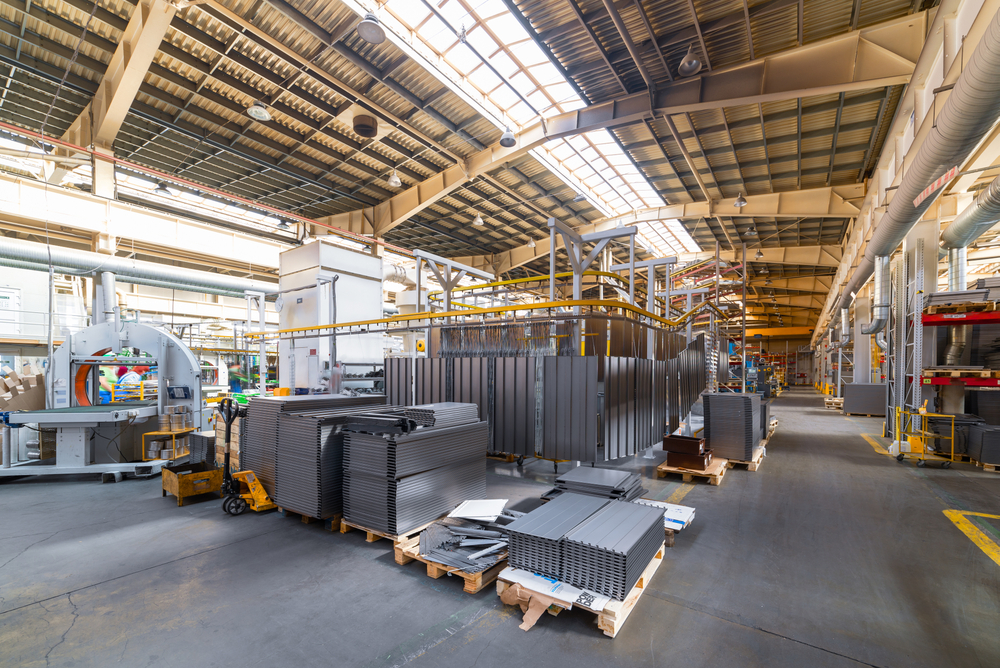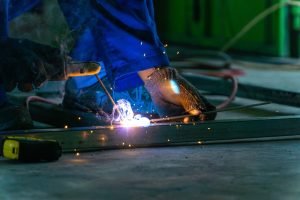Steel is among the most abundant metals on earth, even though it’s not naturally occurring. There are thousands of steel grades and types, each with their own properties and subsequent uses. However, most everyday people will probably only know about stainless steel as it’s used in commercial settings.
Mild steel is less well known as it’s ideal for manufacturing projects. In this blog we’ll be delving deeper into mild steel, its properties and how it gets used.
What is mild steel?
Mild steel is a type of carbon steel made predominantly from iron and carbon. While this combination is normal for most steel metal, mild steel stands apart due to its chemical composition. Mild steel contains a very low amount of carbon – at most 0.25%. It can also feature trace amounts of other elements, such as silicon, phosphorus, and manganese.
The process of making mild steel follows these steps:
- Iron ore is melted in a blast furnace along with coal and lime. The latter is added to form a protective layer on top of the molten metal.
- Scrap steel is then added, and oxygen is blown through the mixture. This reduces the carbon content of the steel.
- The mixture can then be transferred to another blast furnace. Here, adjustments can be made to the steel’s chemical composition and impurities can be removed.
- Following this, the metal undergoes initial forming through casting.
- Once it has solidified, the mild steel slab gets formed further using forming methods such as hot and cold rolling. It’s at this stage the steel takes on many of its defining properties.
Mild steel properties
High strength and durability
Mild steel can endure high levels of stress without breaking. It’s also ductile, meaning the metal will bend substantially before it does eventually break. This is ideal for structures that require a degree of flexibility alongside the ability to withstand strong forces.
High melting point
The melting point of mild steel is a stand-out feature. It is between 1350-1530°C (2462-2786F). It’s a material that’s therefore well suited to high temperature environments. As a result, mild steel is often used in construction to protect buildings against fire damage and meet certain health and safety standards.
Versatile
Mild steel responds well to machining and welding. For instance, both MIG and TIG welding processes can achieve great results. As such, there are many techniques that can be used to shape products out of mild steel. Mild steel products are often fabricated to a high level of precision as a result. This also lets an experienced metal fabricator like FEM to select the processes that’ll produce the best results for your project.
Cost effective
The composition of mild steel contains fewer alloys than other types of steel and popular fabrication metals. As a result, its cost per pound is often less than that of stainless steel and aluminium. Mild steel tends to be an effective option for companies looking to control the costs of their fabrication project.
Uses of mild steel
One of the key applications of mild steel is in steel fabrication work. Here, mild steel fabrication companies can use it to create products for use in a variety of industries. These include aerospace, food production, transportation, energy, and more. This is in turn because mild steel fabricated products can be used in a range of settings. Common mild steel products include:
- Piping
- Machinery parts
- Household items – toasters, bed frames, ovens, etc.
- Storage tanks
- Fences and gates
- Pressure vessels
Mild steel is particularly useful in construction as mild steel structures can withstand heavy loads and adverse weather conditions. Here, it can be shaped into beams, columns, and other support structures. Mild steel can also be galvanised to increase its lifespan further. This is made possible by the coating present on galvanised mild steel that protects the metal from the effects of extreme weather.
One pitfall of using mild steel is that the metal is susceptible to corrosion. As a result, it might not be the best choice for every fabrication project. FEM can offer expert advice for steel fabrication work. We can also use our experience and knowledge around materials to provide a suitable alternative too.
Common mild steel grades
Mild steel has a range of grades, which is determined by the number of other elements within the metal. This can influence the material’s properties.
EN 1.1121
A general-purpose steel, this grade has good formability and ductility. It contains between 0.08%-0.13% carbon and manganese ranging between 0.3%-0.6%.
EN 1.0301
This mild steel grade is the most effective when it comes to weldability. It typically contains 0.1% carbon, 0.4% silicon and 0.4% manganese. The metal will also contain trace amounts of aluminium, copper, chromium, nickel, and molybdenum.
EN 1.0402
Often used in machinery parts, this grade balances strength, toughness, and ductility. Its carbon content ranges from 0.18%-0.23%, while it contains between 0.3%-0.6% of manganese.
Metal fabrications near me
Mild steel is typically in high demand for fabrication projects and for good reason. At FEM, we put our knowledge and experience to use to determine if it’s right for your needs. We’re fully accredited, so you are safe knowing that our products meet industry standards and regulations.
Contact us today and we’ll be happy to give you a free quote.



